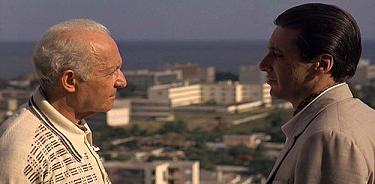Begettings of
the Broken Bold
Thanks for the following
quotation (“Non deve…
nella testa“) go to the
weblog writer who signs
himself “Conrad H. Roth.”
|
… Yesterday I took leave of my Captain, with a promise of visiting him at Bologna on my return. He is a true A PAPAL SOLDIER’S IDEAS OF PROTESTANTS 339 representative of the majority of his countrymen. Here, however, I would record a peculiarity which personally distinguished him. As I often sat quiet and lost in thought he once exclaimed “Che pensa? non deve mai pensar l’uomo, pensando s’invecchia;” which being interpreted is as much as to say, “What are you thinking about: a man ought never to think; thinking makes one old.” And now for another apophthegm of his; “Non deve fermarsi l’uomo in una sola cosa, perche allora divien matto; bisogna aver mille cose, una confusione nella testa;” in plain English, “A man ought not to rivet his thoughts exclusively on any one thing, otherwise he is sure to go mad; he ought to have in his head a thousand things, a regular medley.” Certainly the good man could not know that the very thing that made me so thoughtful was my having my head mazed by a regular confusion of things, old and new. The following anecdote will serve to elucidate still more clearly the mental character of an Italian of this class. Having soon discovered that I was a Protestant, he observed after some circumlocution, that he hoped I would allow him to ask me a few questions, for he had heard such strange things about us Protestants that he wished to know for a certainty what to think of us. |
Notes for Roth:

The title of this entry,
“Begettings of the Broken Bold,”
is from Wallace Stevens’s
“The Owl in the Sarcophagus”–
This was peace after death, the brother of sleep, The inhuman brother so much like, so near, Yet vested in a foreign absolute, Adorned with cryptic stones and sliding shines, An immaculate personage in nothingness, With the whole spirit sparkling in its cloth, Generations of the imagination piled In the manner of its stitchings, of its thread, In the weaving round the wonder of its need, And the first flowers upon it, an alphabet By which to spell out holy doom and end, A bee for the remembering of happiness. Peace stood with our last blood adorned, last mind, Damasked in the originals of green, A thousand begettings of the broken bold. This is that figure stationed at our end, Always, in brilliance, fatal, final, formed Out of our lives to keep us in our death.... |
Related material:
- Yesterday’s entry on Giordano Bruno and the Geometry of Language
- James Joyce and Heraldry
- “One might say that he [Joyce] invented a non-Euclidean geometry of language; and that he worked over it with doggedness and devotion….” —Unsigned notice in The New Republic, 20 January 1941
- Joyce’s “collideorscape” (scroll down for a citation)
- “A Hanukkah Tale” (Log24, Dec. 22, 2008)
- Stevens’s phrase from “An Ordinary Evening in New Haven” (Canto XXV)—
Some further context:
Roth’s entry of Nov. 3, 2006–
“Why blog, sinners?“–
and Log24 on that date:
“First to Illuminate.”